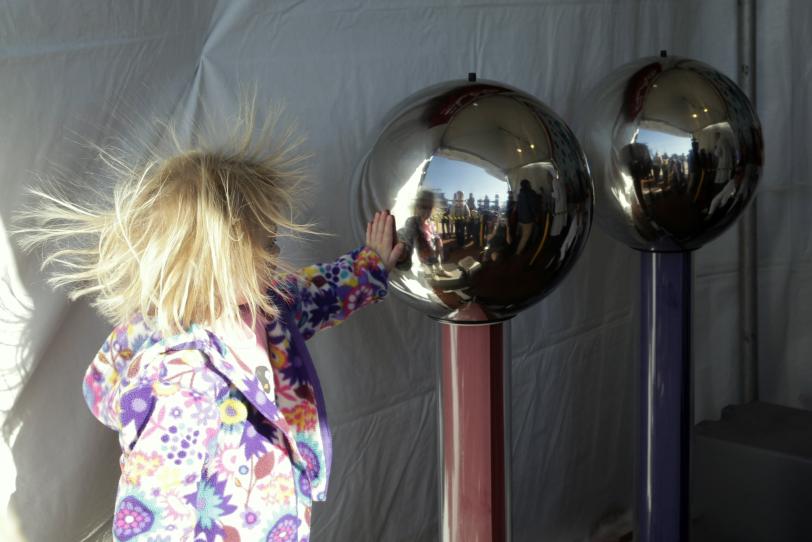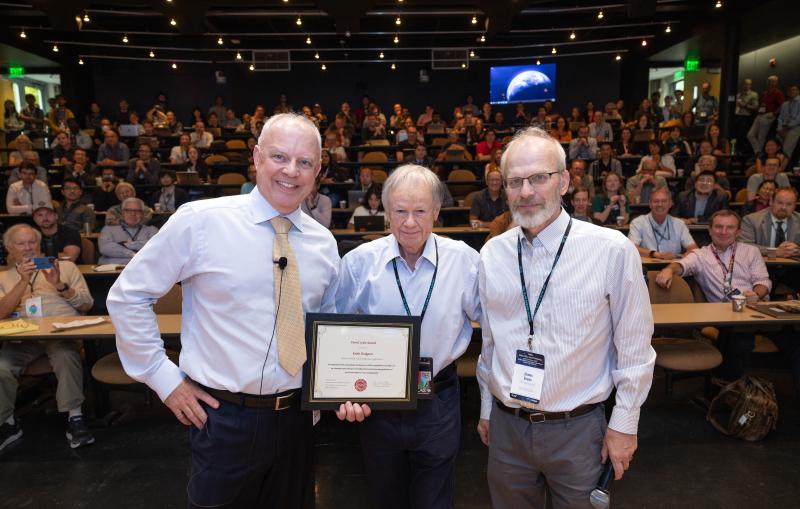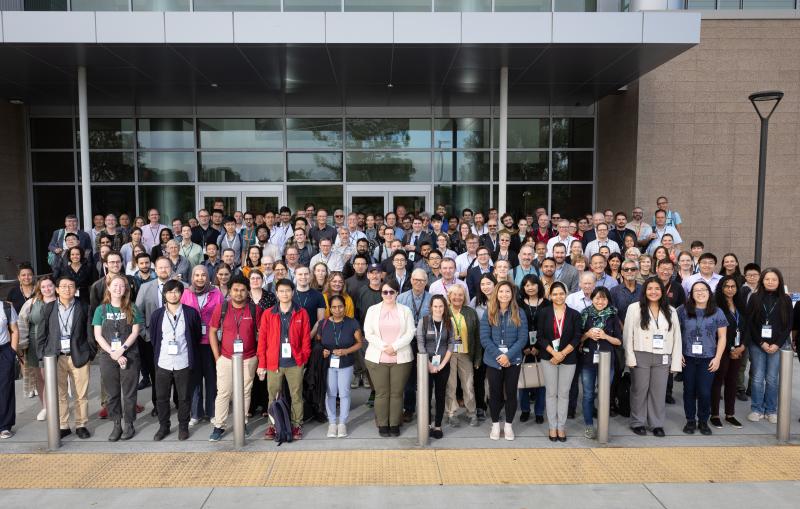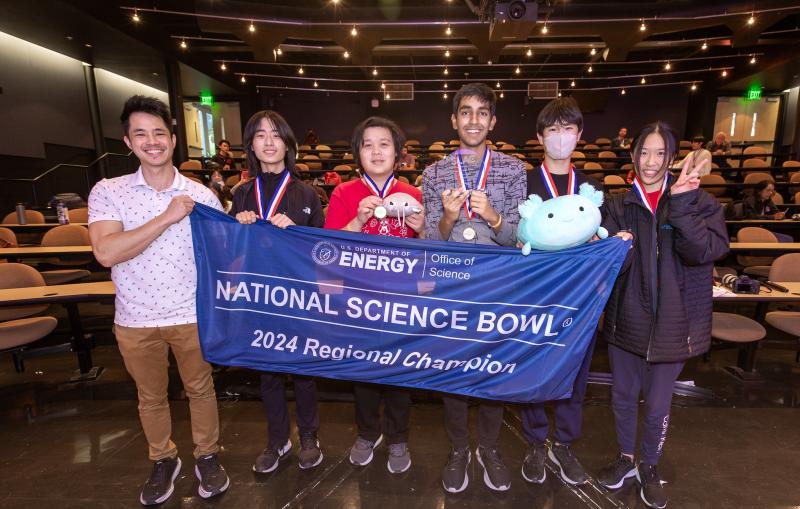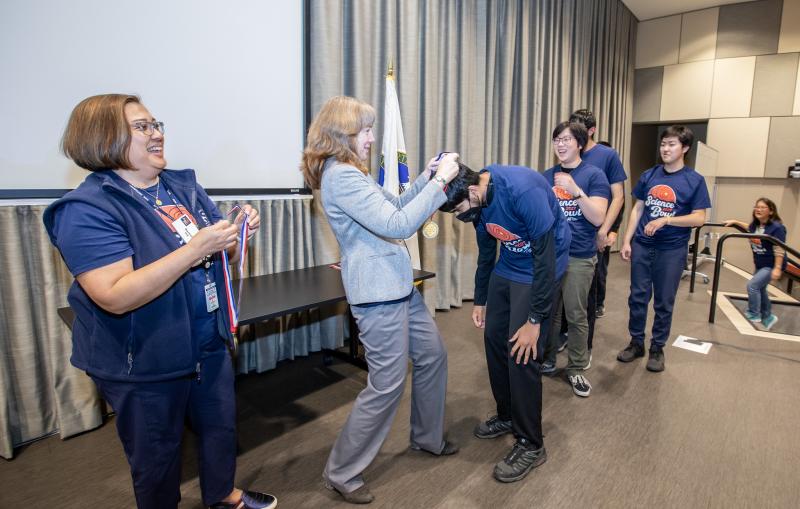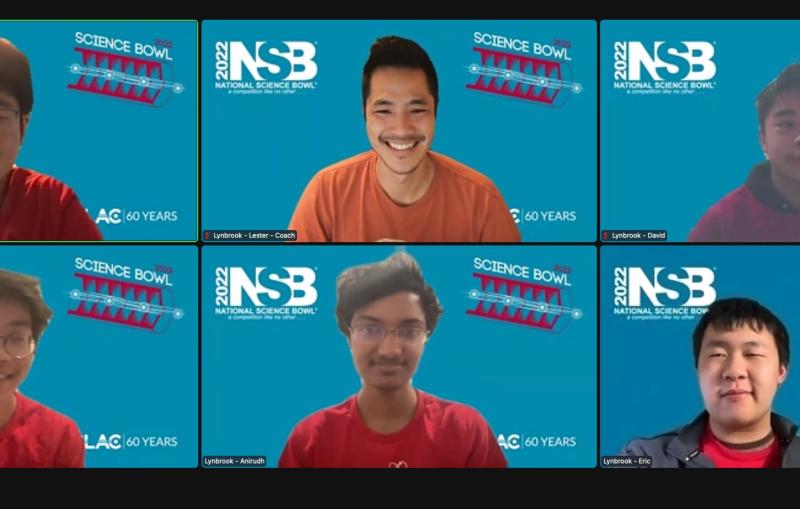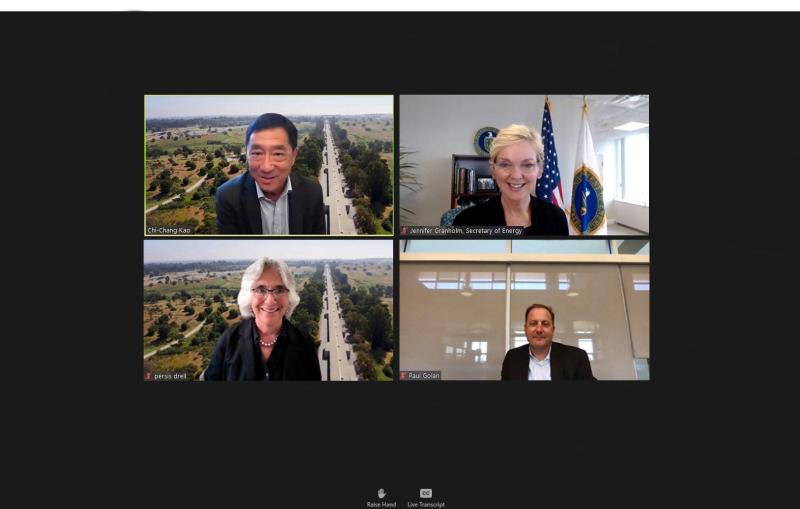SLAC Goes to Bat for Science at Discovery Day
Fifth Annual Bay Area Science Festival Turns AT&T Park into Science Fair
The annual Discovery Day at AT&T Park was yet again a grand slam for science: About 35,000 visitors flocked to the ballpark of the San Francisco Giants on Nov. 7 to attend the fifth edition of the family-friendly science fair. With 150 exhibits and activities, science and technology organizations from across the Bay Area made science fun and accessible to the public.
The Department of Energy’s SLAC National Accelerator Laboratory took part with an exhibit called “How do we accelerate discovery?” It engaged curious explorers of all ages in interactive demonstrations on the physics of electric fields and vacuum science. Both disciplines come together at the lab’s 2-mile-long linear particle accelerator, which enables world-class research across a variety of fields, including materials science, biology and chemistry.
“Our exhibit at Discovery Day was a great success,” says SLAC’s outreach events manager, Rachel Isip. “It was more hands-on than in previous years, with visitors literally becoming part of the experiments this time.”
For instance, a “hair-raising experiment” dared passersby to experience the repulsive nature of identical electric charges first hand by touching a Van de Graaff generator, whose strong electric field would make their hair stand up.
The second set of experiments dealt with the absence of air – a condition found in outer space and particle accelerators alike. Among other things, visitors learned that sound doesn’t travel through vacuums and that marshmallows would make larger s’mores in space because they swell up in the void.
SLAC participated for the fourth time in the concluding event of the Bay Area Science Festival (BASF), which celebrates science every year with a large number of activities at various locations in the Bay Area. One of BASF’s key objectives is to “engage young people in the fun, excitement and awe of science to inspire them to careers in science and technology.”
Contact
For questions or comments, contact the SLAC Office of Communications at communications@slac.stanford.edu.
SLAC is a multi-program laboratory exploring frontier questions in photon science, astrophysics, particle physics and accelerator research. Located in Menlo Park, Calif., SLAC is operated by Stanford University for the U.S. Department of Energy's Office of Science.
SLAC National Accelerator Laboratory is supported by the Office of Science of the U.S. Department of Energy. The Office of Science is the single largest supporter of basic research in the physical sciences in the United States, and is working to address some of the most pressing challenges of our time. For more information, please visit science.energy.gov.
